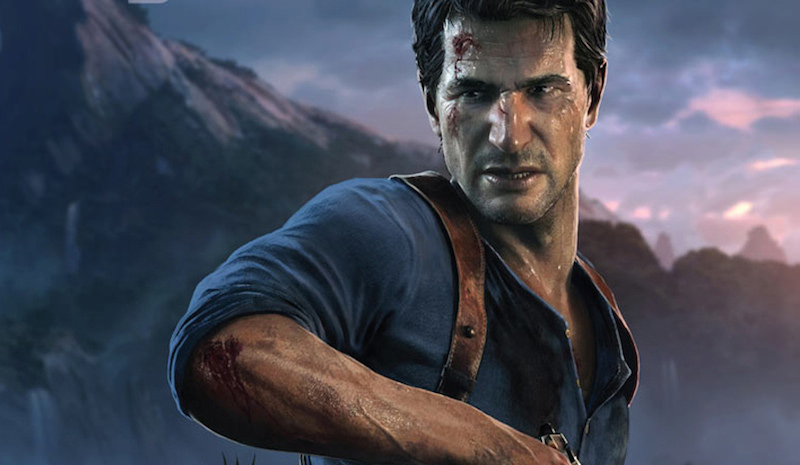Instructor, students talk leveling up with TFT video game writing program

Professional video game writer Marianne Krawczyk has written for video games including “Uncharted 3” and “God of War.” This fall, she is teaching a video game writing class in the School of Theater Film and Television’s Professional Program where she will help students write their own video game narratives. (courtesy of BagoGames)
By Lisa Aubry
Oct. 12, 2017 10:48 p.m.
Marianne Krawczyk brought a PlayStation 3 console to her class as an educational tool for her students.
Krawczyk, a professional video game writer, teaches a video game writing course in the UCLA School of Theater, Film and Television’s Professional Program, which offers graduate-level, nondegree courses to anyone with an undergraduate degree. Krawczyk’s course is also open to students who are in their third or fourth year of college. Students attending the 10-week course learn how to create video game narratives and storylines by studying their structure and completing their own projects, Krawczyk said.
During their Tuesday-night meeting, Krawczyk dimmed the lights in Melnitz Hall auditorium as students settled into their seats to watch the first 45 minutes of gameplay in the action-adventure game “Uncharted 3: Drake’s Deception.”
The story follows protagonist Nathan Drake as he winds through the narrow alleyways of Cartagena, Colombia, to claim heritage to Sir Francis Drake and his rumored enormous treasure.
During the lecture that followed, Krawczyk referenced “Uncharted 3” and “God of War” to discuss the basic genres and structure of video game writing. She explained that video game writing involves a different type of narrative than traditional storytelling commonly seen in movies, since video games are interactive and give players more agency in the story.
Video game writers have to account for the fact that players have the liberty to sporadically explore the game and must find ways to maintain a streamlined narrative that persists throughout its duration, she said. One way to keep players engaged is to include gaming components like side-quests or settings for players to explore.
“You have to keep in mind that the audience is an interactive participant in your story and they might take their time getting to things, or not,” Krawczyk said. “Sometimes those plot points don’t hit as squarely as they might if they were in feature films.”
Krawczyk said writers also need to offer instructive dialogue to their audience so it can understand how to play. Games should include tutorials or walk-throughs for players to learn how to fight enemies or solve puzzles.
But she also emphasized the importance of finding a balance between informational dialogue to guide players through the game and times of purely active gameplay. Krawczyk said listening and playing activates two different parts of the brain, making it ineffective to bombard players with information during intense fight scenes, because they are not ready to listen.
Creating gameplay tension or inner conflict for the player is another skill that enhances intensity of experience for the audience, Krawczyk said. Challenging feats should be designed for players to overcome them, yet difficult enough to grant players satisfaction for their victory.
Chris Wiltz, a student in the course, said his film background allowed him to compare screenwriting to writing for games. Although the story structure can be similar, Wiltz said video game players require an interactive experience, whereas film audiences only watch the screen.
“Games give you some more autonomy or control over situations, like deciding the ending,” he said. “You have more freedom of movement than you would have with film or television shows.”
Wiltz said he hopes to apply the skills he has learned from this class toward creating an independent game or working in the gaming industry. As media grows increasingly interactive with time, the skills taught in the course will become more and more applicable to everyday life, he said.
Jack Moore, a student who took the class last year, said his interests in creative writing and interactive narratives merged into a passion for video game writing. He added that unlike cinematic practices, which focus on specific settings, video games are unique in their attempt to convey larger, sometimes whimsical, realms.
“Video game writing involves fleshing out the entire world, not just big scenes,” Moore said. “Everything in between needs to be written too.”
However, skills from the class, such as storyline writing, maintaining the audience’s intrigue in the story and character development, can be used in other fields of writing as well, he said.
“Characters are in both games and movies, so thinking about character arcs is a big part of game writing and all writing,” he said. “Video game writing also involves imagining characters complexly and realizing we all have our own consciousness.”
At the end of the class, students will combine video game concepts they have learned in a final project consisting of a narrative pitch and a story, character and environment outline, Krawczyk said. She added they will also have the opportunity to write sample levels of games.
“I think students will walk away with an understanding of what writing for a video game involves and something to hand in to gaming professionals in the industry,” she said.

